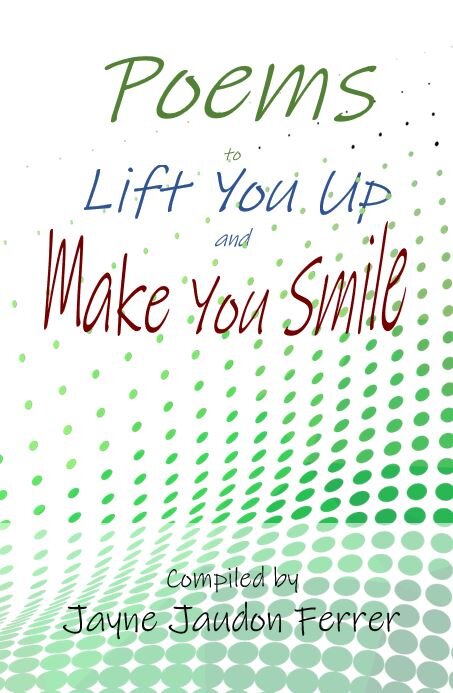Poet Profile: Nancy Scott
.jpg)
New Jersey resident Nancy Scott came late to poetry, then made up for lost time. Having worked with the abused, the disenfranchised, and the vulnerable in earlier careers, she had an abundance of life experience from which to draw when she began studying the craft of poetry. Now the author of four books, the most recent being Detours & Diversions (Main Street Rag, 2011), Nancy currently serves as managing editor at U.S. 1 Worksheets, a poetry journal that is published annually.
Why poetry?
Sometimes a door opens and I walk inside.
What's the most interesting "poetry pilgrimage" you've ever made?
Is there some consistent trademark or characteristic that you've discovered in your poetry?
I tend to write narrative poetry about people and places; I can’t remember writing a form poem I’d admit to or poems about the natural world or dogs. I often look for the humor in a situation when writing. I like to avoid overly self-conscious poetry.
How did you come to be a poet?
In the mid-’90s, I began thinking about how I could record the myriad stories I’d heard as a caseworker for the state of New Jersey. I wanted to create a moment, not just journalize the information, so poetry seemed like a good idea, but I had no idea how to go about writing a poem. I had not read much poetry since my college days at Brandeis and the University of Chicago, and I was totally out of touch with modern poets. I took a course at the local Y, then another, then did a residency at Ragdale in Illinois, and many more workshops and courses until I felt confident with the craft.
Do you have favorite poets or poems?
When I first started writing poetry, I tackled stories from my caseload—drugs, war, AIDS, homelessness, abused kids, not the usual subjects of poetry. Carolyn Forche’s anthology, Against Forgetting, and Martin Espada’s anthology, Poetry Like Bread, introduced me to how to make the leap from these kinds of experiences to poetry. Much to my surprise, I’ve had success in getting most of the poems published, so there is a market after all.
In the great scheme of things, where does poetry fit in?
A few years ago when I retired, I would have said that it was a major part of my life. Having had four books of poetry published in the past four years, I still continue to write, but I’ve become enamored now with creating and exhibiting my collages and having my art and poetry published together. Over seventy, I realistically don’t know how many productive years I have left, so I’m eager to make the days count.
Describe your writing routine and/or process.
I spend a great deal of time outlining a poem and composing lines in my head before I commit anything to paper. I’m really lousy at writing spontaneously from prompts or drawing inspiration from nature. Sometimes it has taken years to get a poem to the point where I’m satisfied with it.
What's the most absurd thing you've ever written a poem about?
An emu that snarled traffic on an Interstate in Mississippi. It called “Dumping the Emu” and appears in my latest chapbook, Detours & Diversions.
When/where are you most inspired?
In the middle of the night and the next morning at my computer at the kitchen table.
Which classic poet would you most like to meet, and why?
Not sure Carl Sandburg falls into the “classic” category yet, but still I would like to meet him. We have an Illinois connection; I was raised in Elmhurst, a suburb of Chicago. Sandburg owned a home in Elmhurst where he wrote the Rootabaga Stories. By the time I was aware of Sandburg’s work, the house had been torn down and replaced with a parking lot. I have always been attracted to his Chicago Poems because I frequently write about the strata of society that attracted Sandburg.
Anything else you'd like to share--advice, anecdotes, forthcoming adventure, etc?
As managing editor of U.S.1 Worksheets, an annual print journal of poetry, at lot of volunteer time is spent putting together each issue. After reading more than 1500 poems for each issue, we find so many that show promise, but have not gone through the rigors of revision and development. I wish more poets would let their words simmer until they are absolutely convinced that they have found the best way to express what they want to say.
Click here to read another recent interview with Nancy, if you'd like to learn more about how her new book, Detours & Diversions, came to be. And be sure to visit her website at www.nancyscott.net. Many thanks to Nancy for her time and reflection on these questions. Read more of her wonderful poems in the YDP archives.
Probably the first time I was admitted into the Master Class at the NY State Summers Writers Institute at Skidmore College a few years ago, where I had the opportunity to learn from Frank Bidart, an inspired teacher and poet.
|


.jpg)